(NLDO) - Data from the Voyager 2 spacecraft has revealed special canyons in Ariel, the "moon of life" of Uranus.
Ariel is Uranus's fourth-largest moon, which has recently emerged as one of the potential targets for the search for alien life.
But there's a big catch: Where scientists expect life to exist on this cold, distant world is the potential underground ocean it might be hiding. Accessing an alien underground ocean is incredibly difficult.
Analyzing data from NASA's Voyager spacecraft, a research team led by planetary geologist Chloe Beddingfield from the Johns Hopkins University Applied Physics Laboratory (USA) found a solution.
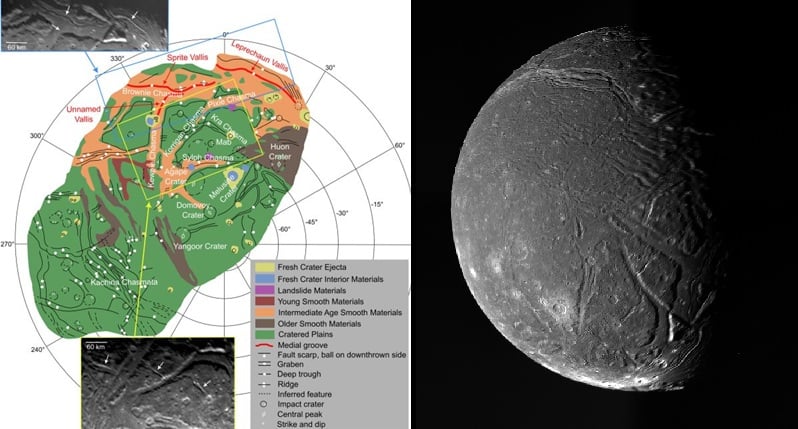
Map of some geological features on Ariel's surface and images taken by NASA spacecraft of this moon - Photo: NASA/JOHN HOPIKINS UNIVERSITY
According to Science Alert, Ariel's underground ocean, if it exists, is also surrounded by a thick ice shell.
Meanwhile, future missions will only be able to send small exploration devices there, which will have difficulty digging through the ice crust, which can be tens of kilometers thick, to reach the underground ocean.
So we need to take advantage of natural structures.
Ariel's surface has many deep valleys, which future missions should target, because they may contain sediments that have erupted from below, according to Dr. Beddingfield and his colleagues. These include carbon dioxide ice and other carbonaceous deposits that may be the result of chemical processes taking place inside the moon.
If so, the canyons revealed by Voyager 2 data could be the "entrance" to life we hope for, since these types of sediments can reveal biological processes.
Additionally, the materials ejected inside the canyons may also reflect the chemical composition of the ocean and provide many details about Ariel's internal structure and how geologically active it is, if at all.
The abysses on Ariel's surface are fascinating, containing many "young" geological features that scientists hope may reflect a vibrant world operating within.
Ariel and other moons of Uranus such as Oberon, Titania, Miranda... are expected to have a fairly large underground ocean inside and have had life for a long time.
A US-UK-German study led by NASA's Jet Propulsion Laboratory (JPL) even suggests that fish may be swimming inside these oceans, as well as another potential underground ocean inside Uranus itself.
Voyager 2 only flew by Uranus, so the data it sent back to Earth about the planet and its moons—including Ariel—was limited. However, NASA has launched another mission, the Uranus Orbiter and Probe, specifically for these celestial bodies.
Source: https://nld.com.vn/loi-vao-the-gioi-su-song-ngoai-hanh-tinh-lo-ra-o-ariel-196250212093610613.htm


![[Photo] "Ship graveyard" on Xuan Dai Bay](https://vphoto.vietnam.vn/thumb/1200x675/vietnam/resource/IMAGE/2025/11/08/1762577162805_ndo_br_tb5-jpg.webp)





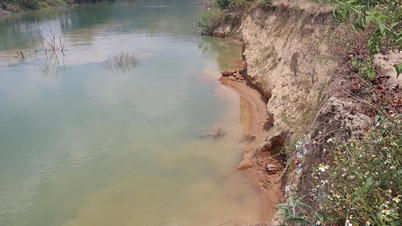





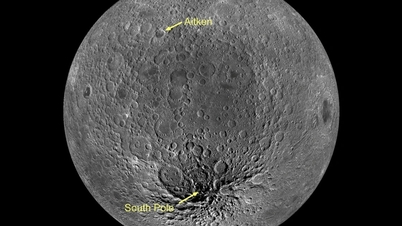


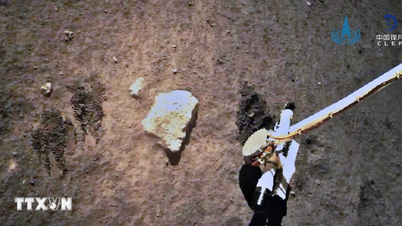






















![[Video] Hue Monuments reopen to welcome visitors](https://vphoto.vietnam.vn/thumb/402x226/vietnam/resource/IMAGE/2025/11/05/1762301089171_dung01-05-43-09still013-jpg.webp)


































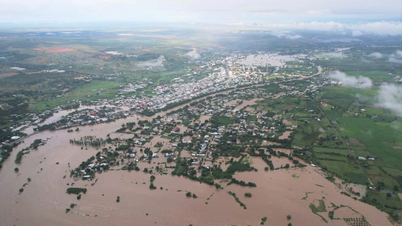




































Comment (0)